The search for intelligent life beyond our planet, and even our own Solar System, is stepping up. What might it find? And what could any discoveries mean for humankind?

COME WITH ME, FOR A MOMENT, to one of South America’s most desolate places. Tucked under snow-capped Andean peaks 90km from San Pedro de Atacama, in north-eastern Chile, it’s a shallow basin of desert soil and rock covering about 1000ha. The impression of a low-lying landscape is illusory, because this place is more than 4300m above sea level, where breathing becomes laboured with minimal exertion. What makes the scene truly remarkable are steam plumes punctuating the barren landscape and bubbling hot springs foaming white in high-altitude sunshine. Welcome to the El Tatio geothermal field, home to the world’s highest geysers.
El Tatio has recently become a touchstone in astrobiology – the study of the origin and possible distribution of life in the Universe. Opaline silica rock structures found on Mars by the NASA rover Spirit have been identified as uncannily similar to El Tatio formations, which are known to have had a biological origin in nutrient-rich water flows, rather than arising simply due to chemistry. It’s not only in their appearance that the rock structures are similar, report the Arizona State University researchers behind the discovery. The rainbow spectrum of their reflected light is almost identical – a signature of much greater significance. The researchers stop short of claiming to have found ancient microbial life on Mars, but are quietly gleeful about the discovery’s significance.
THE RISE AND RISE OF ASTROBIOLOGY Not so long ago, research of this kind would have been deemed highly speculative and more akin to science fiction. But astrobiology’s persuasive force is such that conclusive proof of extraterrestrial life now seems very close. The world awaits the news, with more than a modest elevation of its collective heart-rate.
هذه القصة مأخوذة من طبعة March -April 2018 من Australian Geographic Magazine.
ابدأ النسخة التجريبية المجانية من Magzter GOLD لمدة 7 أيام للوصول إلى آلاف القصص المتميزة المنسقة وأكثر من 9,000 مجلة وصحيفة.
بالفعل مشترك ? تسجيل الدخول
هذه القصة مأخوذة من طبعة March -April 2018 من Australian Geographic Magazine.
ابدأ النسخة التجريبية المجانية من Magzter GOLD لمدة 7 أيام للوصول إلى آلاف القصص المتميزة المنسقة وأكثر من 9,000 مجلة وصحيفة.
بالفعل مشترك? تسجيل الدخول
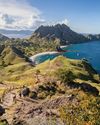
SULAWESI SENSATIONS
There are worlds within worlds and marvels untold waiting to be experienced on Indonesia's remote islands.
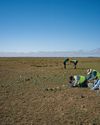
SEARCHING FOR AUSSIE DINOSAURS
Our understanding of where to find ancient life in Australia has been turned on its head by a new appreciation of the country's geology. Now the world is looking to our vast outback as the latest hotspot to locate fossils.
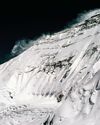
THE HARDEST NIGHT
The first Australian ascent of Mt Everest in 1984 is one of the great feats of mountaineering. Climbed by a small team semi-alpine style, with no bottled oxygen, via the Great (Norton) Couloir, it remains unrepeated 40 years later.
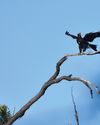
WEDGE-TAILED WONDER
The chance discovery of an eagle nest leads to an extended vigil observing normally hidden behaviours of one of nature's supreme winged marvels.
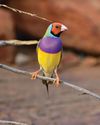
BURDENED BY BEAUTY
Northern Australia's Gouldian finch survives in huge numbers in cages around the world, but its wild population continues to struggle.
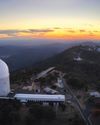
A TELESCOPE FOR A GOLDEN AGE
After a stellar 50 years as one of the country's major scientific assets, the AAT continues to play a major role in keeping Australian astronomy on the world stage.
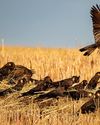
COCKY WHISPERING AT COOMALLO CREEK
This patch of remnant bush on the edge of the West Australian wheatbelt is a place loved by one of Australia's rarest bird species and the man who has studied the site for more than 50 years.

A PIONEERING PAIR
Louisa Atkinson and her mother, Charlotte, were among Australia's earliest authors, and pioneers in women's rights.
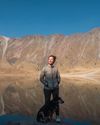
THE LONGEST WALK
Lucy Barnard is walking from Argentina to Alaska -the length of the Americas - on an extraordinary journey of endurance and adventure.
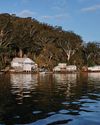
SECLUDED, BUT NOT ALONE
In an era of heightened social isolation, where many of us lead lonely lives, Dangar Island offers the chance to be part of a supportive, connected community.